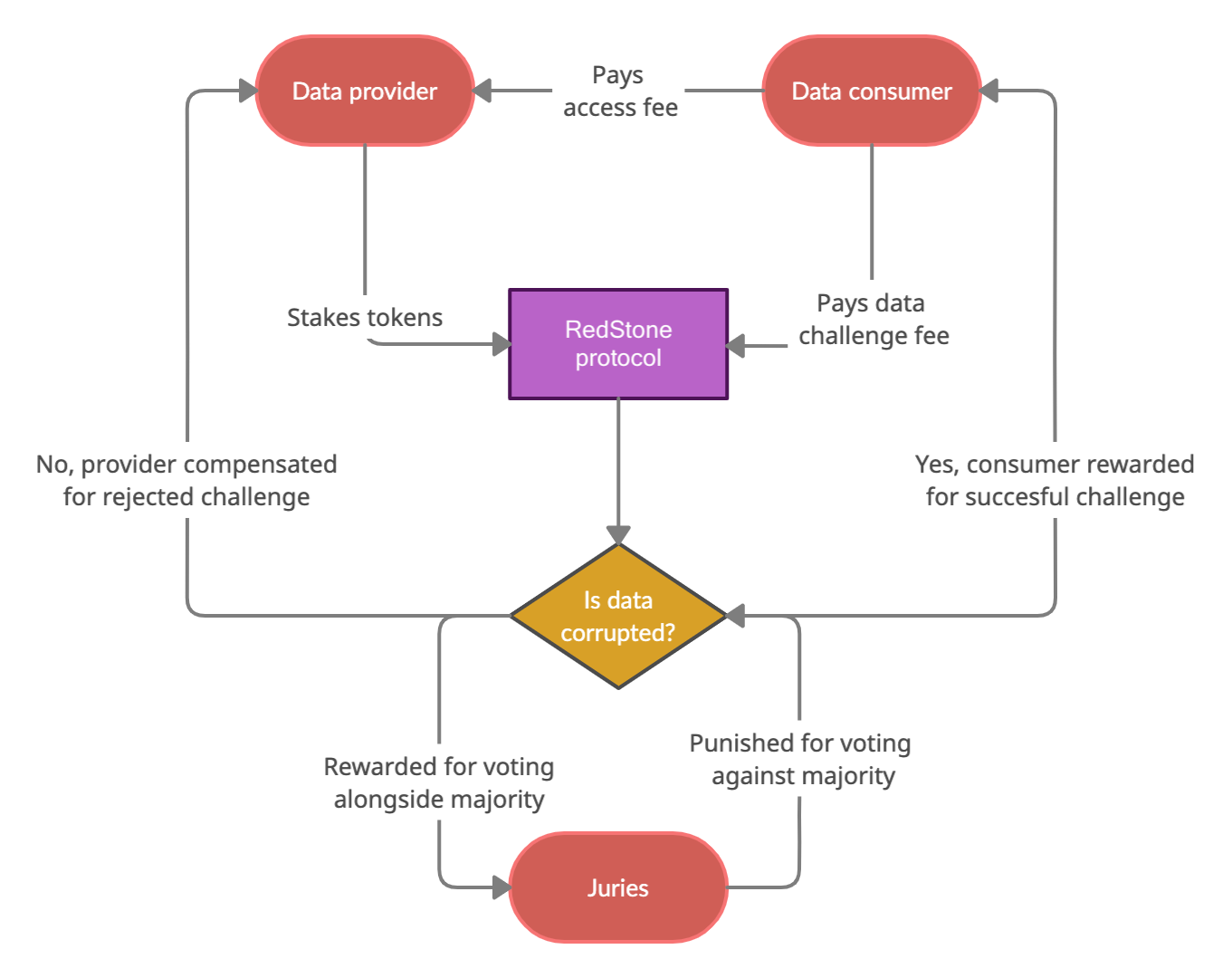🪙 Tokenomics
The RedStone token has not been launched yet. Beware of scammers and anyone trying to sell you RedStone tokens.
The token facilitates the provision of reliable and accurate information from the outside world to blockchain networks.
Usage of the token
Tokens have proven to be a very useful tool for achieving coordination in distributed systems and aligning the incentives of various actors. RedStone facilitates a data-sharing ecosystem by incentivizing participants to produce, publish, and validate data in a continuous and diligent way.
Data access fees
The end users who benefit from access to valuable information use tokens to reward providers that published this data. The exact fee and the subscription terms are at the discretion of the provider and depend on their effort, demand for data and potential competition.
Locking
Every provider needs to publish a Service Level Agreement describing the scope of data being served, the source of information, and the frequency of updates. In the event that a provider breaches the terms of service, there will be a penalty applied that is also denominated in tokens. To reassure users that any future claims will be fully covered, providers must set aside a certain number of tokens and lock them for a set period of time. These funds are locked in the ecosystem and are an important factor for users when selecting the most reliable provider.
Dispute resolution
Because of the diverse nature of the provided information, it will not always be possible to decide if data was corrupted. Therefore, it will be necessary to have a fallback procedure to resolve any disputes about the data quality. The process could be facilitated by tokens, where juries will be rewarded for voting with the majority and punished for supporting the losing side.
Bootstrapping the market
At the early stage of development, the token could be distributed to providers to reward their availability and bootstrap the market before there is enough demand from data users.
